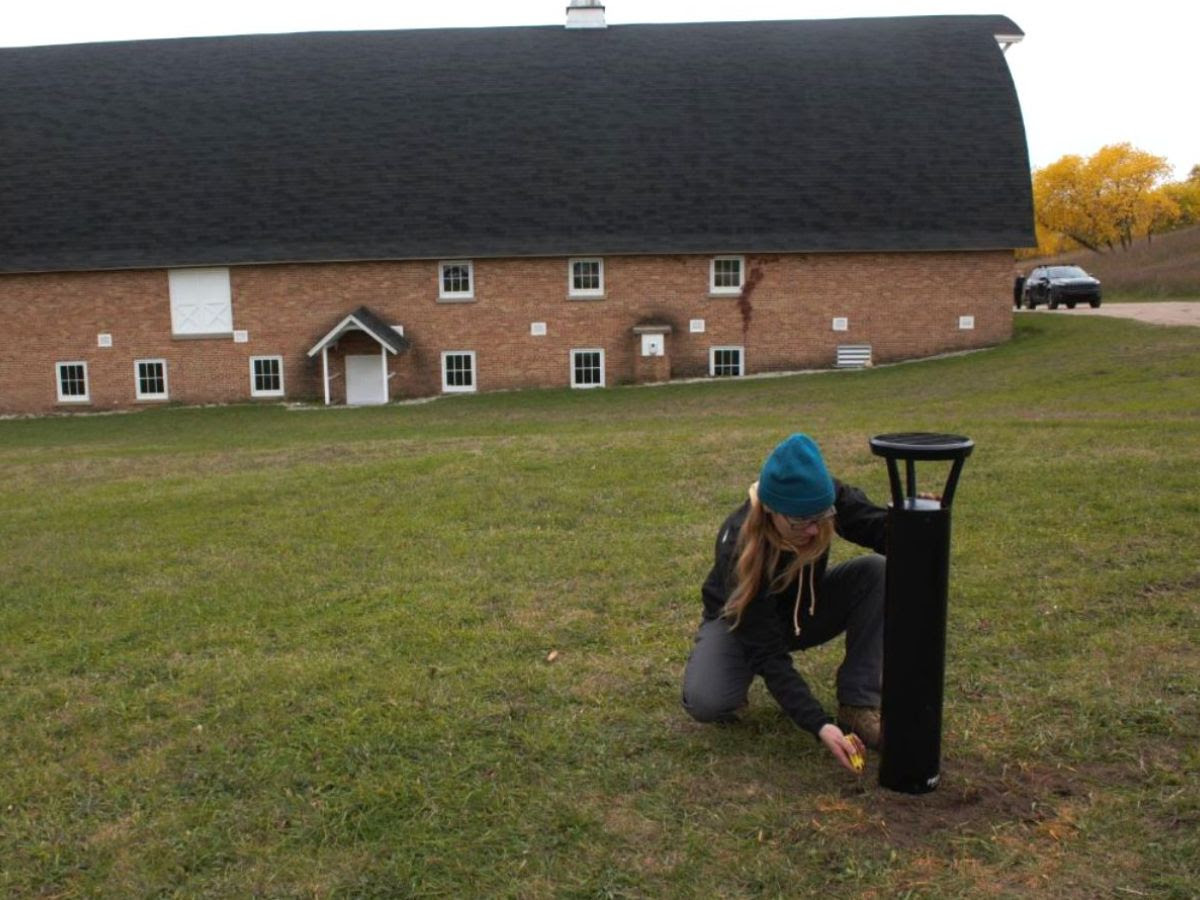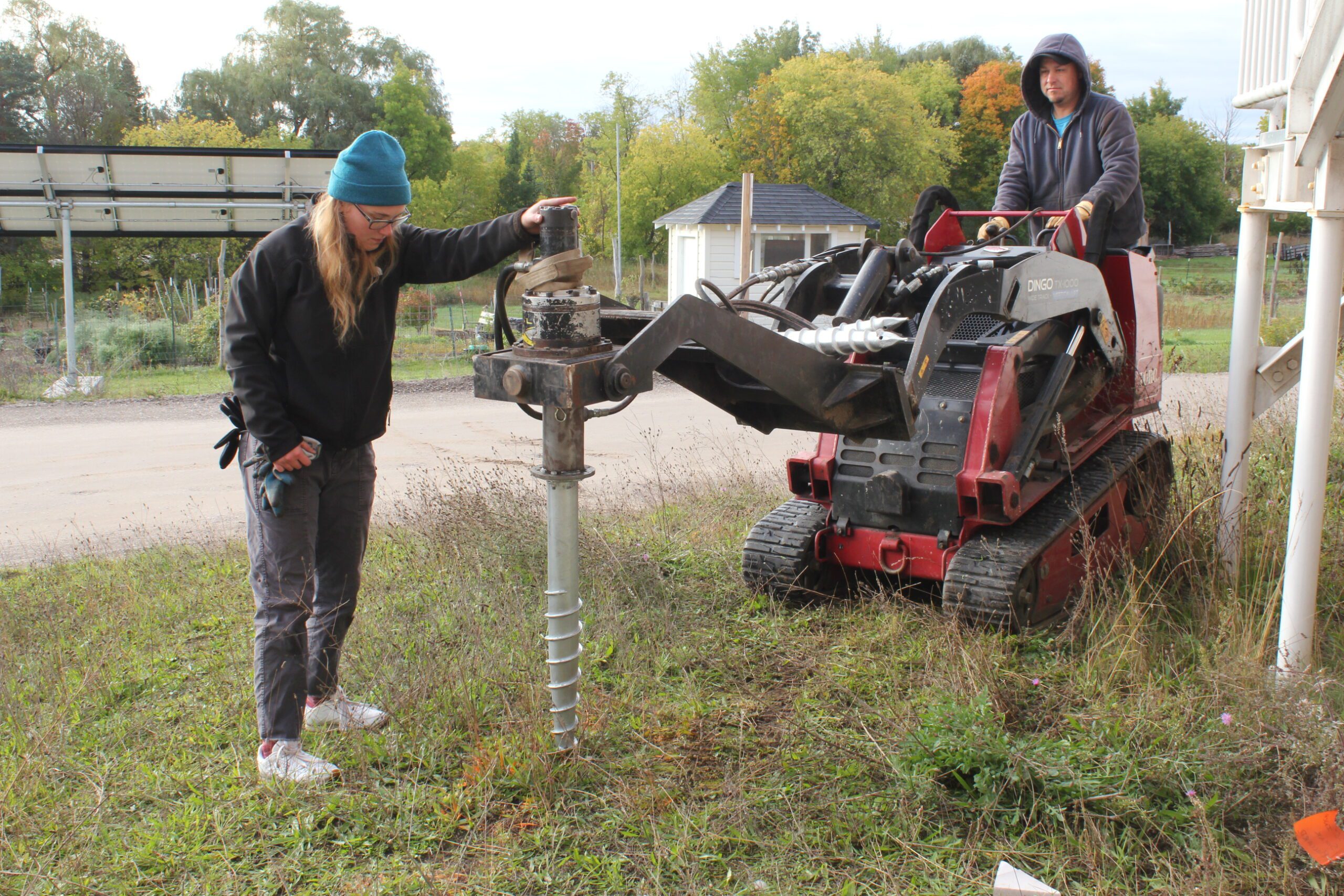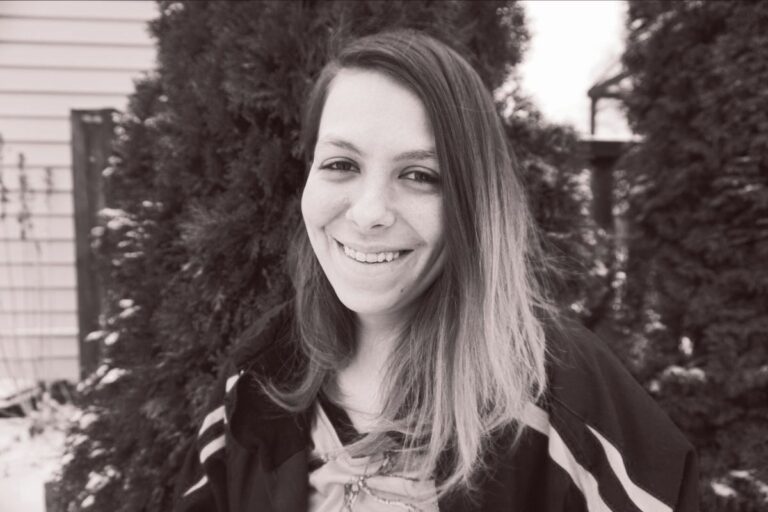
Above: Morgan Vondruska assists with the installation of solar pathway lighting at Historic Barns Park. Morgan started with SEEDS as an AmeriCorps VISTA and was subsequently hired to our Youth Conservation Corps for the installation.
In late 2019, SEEDS Ecology & Education Centers installed our second solar (micro)generation project at Historic Barns Park! After completing a build-out analysis, solar pathway and road lighting was flagged as one of the top strategies to bring the Park to net-zero carbon.
Thanks to support from the Grand Traverse Band of Ottawa and Chippewa Indians, six light fixtures are being piloted at the Park for consideration in larger capital campaigns. They are International Dark Sky Association compliant and 100% solar powered. Each light fixture operates independently and is not “tied to the electric grid,” meaning they can be installed nearly anywhere with no need to bury wires!
Most of the lights were placed near the Cathedral Barn to guide foot traffic for evening events. Venue Manager Stephanie Wiitala said, “The new lighting is a solution that is providing safer and easier night time navigation; I truly appreciate SEEDS initiative and coordination.”
“It was very cool to see a project like this through from the start to finish! I really enjoyed seeing the collaboration of all the partners in that space.” – Morgan Vondruska, AmeriCorps VISTA
The first solar installation by SEEDS at the Park is a 4.5-kilowatt panel that frequently generates more than enough electricity to power both the Cathedral Barn and Farming irrigation. “If users like these lights, then park partners know which fixtures to spec for installation across the Park,” said Executive Director Sarna Salzman.

Assistance installing the lights was sponsored by Deep Foundation Repair. See the informational Dark Sky sign at the Park HERE.
About the Park: Historic Barns Park is 56-acres within the Grand Traverse Commons in Traverse City and is being redeveloped into a one-of-a-kind regional hub for public recreation, community events, agriculture, horticulture, and environmental design. As a SEEDS Center for Ecology & Education, this landscape provides the public a place to see food systems solutions and engage with strategies that reverse global warming.




